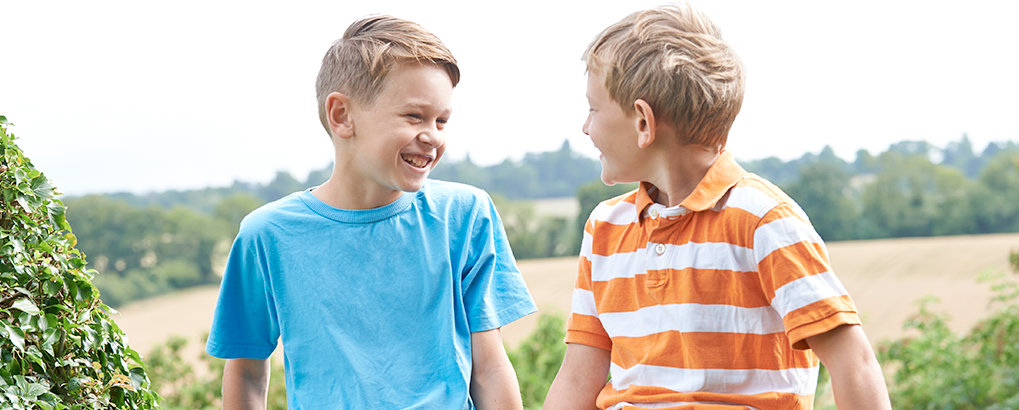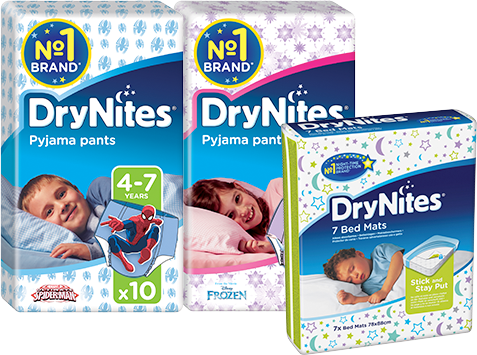Managing Bedwetting
While bedwetting is less common in older children, it's a problem that many deal with. As your child gets older, their increased awareness of the situation can make it have a greater impact on them, so it’s important to manage it with this in mind:
Arm yourself with information
Learning all you can about bedwetting will prove invaluable to both you and your child. Being able to answer your child's questions, explain what's happening or even pointing them in the right direction for expert answers will be a real help to your child. Knowing why it happens and what you can do to help will also make you feel more in control of the situation.
Show understanding
Bedwetting in older children can also become an emotional issue, as the older they are, the more concerned they will be about what others think about them. Also, older children who wet the bed tend to assume that there's something wrong with them and may suffer from low self-esteem as a result. Showing them that you understand these feelings will help them feel supported and less alone with the problem.
Be open
It’s important for your child to know that you're happy and willing to talk about the situation, as communicating openly will help everybody involved deal with the situation more effectively. Some older children who wet the bed may feel they have to hide the problem from everyone, but having someone to talk to openly about all the issues will help them deal with their feelings and concerns.
Provide encouragement
Bedwetting can have a profound effect on children, sometimes lowering their self-esteem. Knowing it's not their fault and that you’re there to support them can make a real difference. Give them encouragement to ward off negative feelings and boost their confidence, especially at a time in their life when emerging independence is crucial to their development.
Expert help
Identifying or ruling out any medical causes and getting advice for your specific situation can be useful at this stage, so it’s a good idea to make an appointment with your doctor or school nurse – especially if your child feels like taking action about their bedwetting. There should also be a NHS children’s continence clinic/adviser in your area.
DryNites® can also help. DryNites® Pyjama Pants are highly absorbent and provide protection against potential accidents. They are also discreet and look like regular underwear, which means children can feel more confident about themselves.


